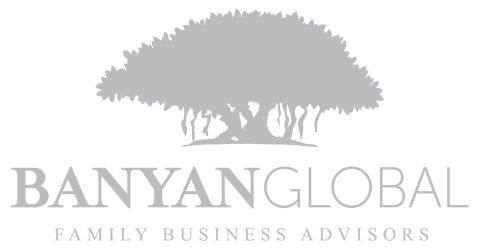New Report from BanyanGlobal Family Business Advisors Shows 80% of Family Businesses Optimistic about Post-Pandemic Position
New Report from BanyanGlobal Family Business Advisors Shows 80% of Family Businesses Optimistic about Post-Pandemic Position
They are conserving cash, prioritizing workforce retention, and ramping up family communications—Why family businesses may emerge from the pandemic stronger than ever
BOSTON--(BUSINESS WIRE)--A new global survey of family businesses from BanyanGlobal Family Business Advisors, conducted at the end of 2020, assesses how family businesses have responded to the pandemic and provides insight into what we can expect for family-owned companies through 2021 and beyond.
“Family Business Pulse and Response to the Pandemic” contains data from more than 140 companies, across 5 continents and more than 25 industries, and follows an earlier survey conducted in May 2020. While the pandemic continues to be a tough environment for family businesses, fewer respondents in the December survey report a negative impact from the pandemic (a drop from 90% to 66%). Notably, family businesses reporting a positive impact improved from 5% to 22%.
“Family businesses seldom experience the high highs of a ‘boom’ economy, but because they are often privately-held and don’t have to answer to Wall Street, they are also much better prepared to weather difficult economic times, too. They can value different things. We will see family businesses emerge from this pandemic with loyal workforces, more efficient systems, and new opportunities to explore,” explains BanyanGlobal founder and partner Josh Baron. “Family businesses could be surprisingly strong coming out of the pandemic.”
The survey data reflects this optimism. 80% of respondents report overall optimism about the future of their businesses with 68% citing more efficient operations, 60% new business opportunities, and 56% more efficient decision-making processes.
Family relationships are more complicated. 33% of respondents reported a negative impact on relationships, while 27% reported a positive impact. One respondent wrote, “Facing a tough year has caused us to realize how important family is and our relationships have grown from it.” As another respondent put it, “There’s nothing like a crisis to bring a family closer together.”
But families can rise above these difficulties, suggests Rob Lachenauer, founder and CEO of BanyanGlobal, if they are willing to work together through challenging times. “Family business is a team sport. You win together or you can lose together.”
The pandemic has likewise forced families to revisit succession plans. 37% of respondents are neutral or feel they are not on track to successfully transition the business, which could be disastrous down the line.
“While it may have made sense in the short-term to postpone succession planning, we recommend revisiting or reinstating transition plans, as delayed or poorly planned transitions can wreak havoc on the business in the long run,” concludes Baron.
In The Harvard Business Review Family Business Handbook (Harvard Business Review, 2021), Baron and Lachenauer note that uncertainty is always part of transition planning. “All family transitions require making decisions that will reverberate for years to come and are based on imperfect information about the future,” they write. This is why owners should start the process of creating a continuity plan that maps out the path from the current generation of ownership to the next and takes into account how the family will transfer assets, shift roles, and develop capabilities in the next generation as early as possible.
Read The BanyanGlobal Family Business Pulse and Response to the Pandemic at http://banyan.global.
BanyanGlobal Family Business Advisors advises the owners of the world’s leading family enterprises (typical annual revenue ranging from $100 million to over $20 billion) as they make difficult decisions during transitions. The firm has advised over 200 business families in 20 countries since its founding in 2012. BanyanGlobal is headquartered in Boston and has an office in Sao Paolo. BanyanGlobal was named the Family Business Advisory Practice of the Year by the Society of Trust and Estate Professionals in 2019 and 2020. The firm’s professionals frequently contribute articles to Harvard Business Review, Family Business Magazine, Tharawat, and Trusts & Estates.
Contacts
Jessica Pellien
jessica@fortierpr.com
(267) 980-6868
